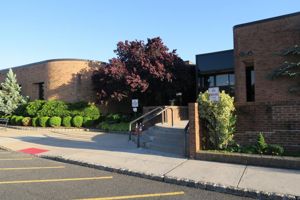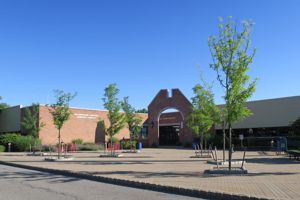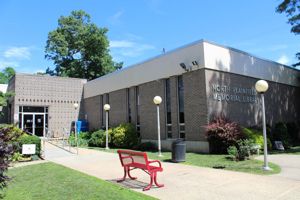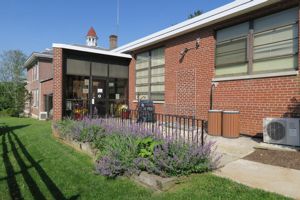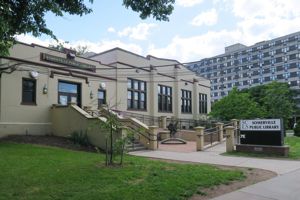Why Diverse Books Matter
About Blog Post
Jun 14, 2017
by Pressroom
by Jessica Trujillo, SCLSNJ youth services manager
“Rudine Sims Bishop published an article in 1990 titled ‘Mirrors, Windows, and Sliding Glass Doors’ that speaks about how our society has grown with culture, but our books don’t reflect it. She describes that people of color see through windows, looking in at a world that isn’t like their own. Bishop noted, ‘When children cannot find themselves reflected in the books they read, or when the images they see are distorted, negative, or laughable, they learn a powerful lesson about how they are devalued in the society of which they are a part.’ Children are affected by what they see around them, and it helps them to grow.” - “We Need Diverse Books” FAQs During the past few years, the push for books featuring diverse characters and written by diverse authors has gained traction. In 2014, #WeNeedDiverseBooks launched a movement and resulted in the formation of a nationwide organization. As a person who not only works with young people, but is also a person of mixed heritage, I know how great the need is for representation in popular culture. When I was a teen, every time a survey of, “which celebrity do you think you look like” would come up, my answer was always, “I dunno. The Asian one?” In this pithy, sarcastic answer I wrapped up all my teenage angst and outrage that, “the general homogenous representation of people in books and media have left me wanting for representation!” At least that is what I was hoping to convey because I learned early on that nobody wanted to engage in my “identity politics.” Fortunately, twenty years later, things are changing for the better. Young people, especially teens, are constantly thinking about who they are. Everyday they are forging their identity and discovering how they fit into the world. Books and other media being consumed can play an instrumental role in the creation of an identity. For a young person, having an opportunity to see themselves reflected in the art they engage with is paramount. Whether the difference is a disability, immigration status, race, gender identity, or sexual orientation; having a mirror of their life and seeing others exploring those stories is incredibly powerful. This kind of representation can go a long way in helping young people feel understood and accepted. The importance of seeing someone who is like you being portrayed as a hero, a goofball, a star athlete, etc., cannot be underestimated. Seeing a character like you—who is complex, nuanced and smashing the stereotypes that you are fighting against—is nothing short of thrilling. The flip side of this topic is that literature can also provide us the opportunity to learn about lives that are different from our own. I loved “Where the Red Fern Grows” when I was a child. I was neither male, Caucasian, from the Ozarks, etc., but I did love dogs. While reading that book, I experienced every joy, triumph, and tragedy with Billy. Old Dan and Little Ann were my dogs, too. That is the power of literature. We can experience lives that we will never have. The only limits are our own imaginations. To experience a story that is not our own is a thing of beauty. It enables us to have experiences that we would never have and that, in turn, gives us insight into ourselves. It helps us imagine beyond our borders. It gives us the opportunity to wonder, “what if” and “what would I do.” It helps us see people—who at first glance seem so different—as relatable and knowable. Stories help us see our common humanity and find the ways that different people are “like me.” Literature as both a mirror and a window for readers is a concept that librarians use to help guide us in our professional work. We hold as a core belief that literature has the power to help people understand their world. At SCLSNJ, we have a collection of books, movies, and more to reflect our diverse communities. Even though not every person will like every book, we attempt to have a book for every person. This summer, or anytime really, challenge yourself to read a book featuring a character that is different from you. Then find your perfect book that features someone like you. Challenge yourself to read widely and precociously. To start you on your way, we have created a booklist (below). Happy reading. Picture Books- “Janine” by Maryann Cocca-Leffler
- “Last Stop on Market Street” by Matt de la Peña
- “We Are Family” by Patricia Hegarty
- “Lottie Paris and the Best Place” by Angela Johnson
- “Families, Families, Families” by Suzanne Lang
- “Happy in Our Skin” by Fran Manushkin
- “Lola Gets a Cat”by Anna McQuinn
- “Princess Tales Around the World: Once Upon a Time in Rhyme With Seek-and-Find Pictures” by Grace Maccarone
- “I Pledge Allegiance” by Pat Mora & Libby Martinez
- “I’m New Here” by Anne Sibley O’Brien
- “Be Who You Are” by Todd Parr
- “There’s a Cat in Our Class!: a Tale About Getting Along” by Jeanie Franz Ransom
Chapter Books
- “A Boy Called Bat” by Elana K. Arnold
- “The Girl Who Drank the Moon” by Kelly Barnhill
- March of the Mini Beasts” by Ada Hopper
- “Hello Universe” by Erin Entrada Kelly
- "Amina’s Voice” by Hena Khan
- “Where the Mountain Meets the Moon” by Grace Lin
- “In the Footsteps of Crazy Horse” by Joseph Marshall III
- “Rain Reign” by Ann M. Martin
- “Flying Lessons & Other Stories” edited by Ellen Oh
- “Saint Louis Armstrong Beach” by Brenda Woods
- “Brown Girl Dreaming” by Jacqueline Woodson
Young Adult Books
- “The Lines We Cross” by Randa Abdel-Fattah
- “The Upside of Unrequited” by Becky Albertalli
- “The Crossover” by Kwame Alexander
- “You're Welcome, Universe” by Whitney Gardner
- “Symptoms of Being Human” by Jeff Garvin
- “Braced” by Alyson Gerber
- “Run” by Kody Keplinger
- “March Trilogy” by John Lewis and Andrew Aydin; illustrated by Nate Powell
- “When Dimple Met Rishi” by Sandhya Menon
- “The Inexplicable Logic of My Life” by Benjamin Alire Sáenz
- “The Hate U Give” by Angie Thomas
- “How Dare the Sun Rise: Memoirs of a War Child” by Sandra Uwiringiyimana.
- “The Sun Is Also a Star” by Nicola Yoon
Further Reading About Diversity
